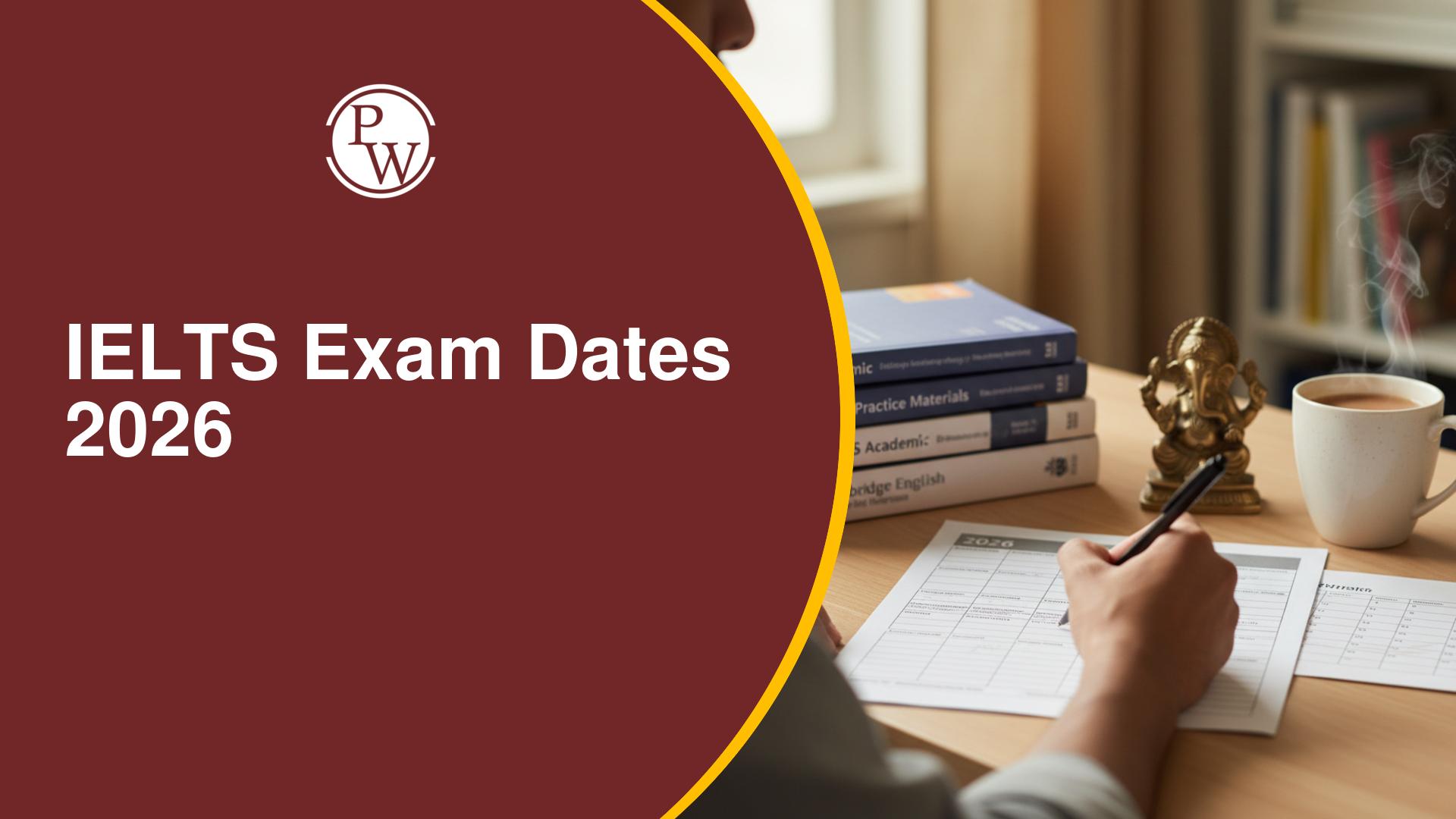
How to Improve Your Grammar for IELTS?: Focusing on grammar skills is crucial while preparing for the IELTS exam. Both the Writing and Speaking sections of the IELTS test pattern require strong grammar skills as it shows the ability of candidates to communicate effectively and accurately in English. Therefore, candidates must develop a strong grammar foundation and a consistent preparation plan to achieve a good IELTS band scores. In this guide, we have provided a few significant strategies to help you enhance your grammar skills and improve your performance on the IELTS test.
Click Here to Explore IELTS Online Courses
How to Improve Your Grammar for IELTS?
Familiarization with the key grammar topics is one of the important steps that can significantly improve your language skills. Here is a list of a few important grammar tips that can guide students to increase their chances of high scores in the IELTS exam.
Grammar for IELTS Academic
The IELTS Academic test IELTS Academic test pattern typically focuses on assessing the English language proficiency in formal English used in academic settings. Therefore, the tone of the test is majorly more structured and formal. Key points to focus on include:
-
Active and Passive Voice: Learn how to use active and passive voice within sentences effectively. Generally, active voice is more concise and dominantly used for the IELTS Speaking section, whereas passive voice is often required in academic writing.
-
Punctuation: Understand the use of proper punctuation such as colons, semicolons, apostrophes, parentheses, and other punctuation marks to improve the flow of writing.
-
Verb Tenses: Correct use of verb tenses is very important for writing and speaking.
Grammar for IELTS General Training
The IELTS General Training test pattern typically focuses on assessing English language proficiency in practical, everyday contexts, such as workplace and social situations. Here are a few tips for improving grammar in this section:
-
Sentence Structure: Try to focus on mastering the sentence structure for better fluency in your speech and writing.
-
Idiomatic Expressions: Familiarize yourself with common idioms to make your communication more natural.
-
Word Order: Understand the correct order of words in a sentence for clear writing and communication.
| IELTS Reading Band Score | IELTS Listening Band Score |
| IELTS Speaking Band Score | IELTS Writing Band Score |
Grammar for IELTS Section
Each section of the IELTS exam tests your grammar skills in different ways. Therefore, developing individual strategies and plans for each IELTS test section is mandatory.
IELTS Grammar for Listening
The IELTS Listening section includes the assessment of the listening skills of candidates through four parts. Aspirants are provided with recordings to answer them accordingly. Meanwhile, a proper understanding of grammar can help students understand and interpret the recording quickly and accurately. Candidates, thereby, can have enough time to understand the details of conversations.
Click Here to Explore - Free IELTS Listening Practice Test PDF
IELTS Grammar for Reading
The IELTS Reading section includes questions based on texts. Therefore, strong grammar skills and knowledge of sentence structure are required to understand the main idea of the passage. Additionally, it helps to interpret the logical structure and the author’s opinion for better answer writing.
Click Here to Explore - Free IELTS Reading Practice Test PDF
IELTS Grammar for Writing
The Writing section consists of two tasks:
IELTS Academic Task 1: Describe, summarize, or explain visual data (graphs, charts, tables, diagrams, etc.)
IELTS General Training Task 1: Write a letter (formal, semi-formal, or informal) based on a given situation.
IELTS Academic Task 2: Write an essay in response to a question or argument, usually academic.
IELTS General Training Task 2: Write an essay on a general topic, typically more social or personal.
Grammar is especially important in both IELTS Academic and General Training to write a well-organized and grammatically correct essay and letter.
Click Here to Explore - Free IELTS Writing Practice Test PDF
IELTS Grammar for Speaking
The IELTS Speaking section tests the grammar skills of students in real time. It focuses on assessing the ability of candidates to use accurate and clear sentence structures in communication. In this section, grammatical errors such as incorrect verb tenses, word order, sentence structure, pronunciation, etc, can negatively affect the test.
Click Here to Explore - Free IELTS Speaking Practice Test PDF
Important Grammar Tips to Improve Your IELTS Score
Consistent practice and dedication are the keys to learning appropriate grammar skills for an IELTS aspirant. Here are some useful tips to help you enhance your grammar skills:
-
Practice regularly for each IELTS test section including Listening, Reading, Writing, and Speaking.
-
Learn various grammar rules to improve fluency in your communication.
-
Refer to various reliable study materials such as grammar books, online study resources, etc, to learn basic grammar rules.
-
Seek feedback from others to identify mistakes and avoid repetition.
-
To show your grammatical knowledge, use a mixed sentence structure including simple, compound, and complex sentences within the conversation.
-
Practice IELTS essay writing to apply grammar rules and improve clarity in your writing.
-
Engage in conversations with your family, friends, and neighbours to improve your spoken English.
-
Study common word combinations to make your language sound more natural.
-
Watch English movies, listen to podcasts, or follow TV shows to familiarize yourself with natural language patterns.
-
Take regular IELTS practice tests to improve your English grammar skills.
-
Proofread your writing to avoid grammar mistakes.
Also Read:
- IELTS exam eligibility requirements
- Documents Required for IELTS Registration
- IELTS Test Slot Booking
Guidance of PW IELTS
Physics Wallah offers multiple online IELTS courses for all students. Follow the IELTS pages to better prepare for the exam.
| What is IELTS Exam? | Documents Required for IELTS Registration |
| IELTS exam eligibility requirements | IELTS Exam Fees |
| IELTS test results | IELTS Exam Pattern |
How to Improve Your Grammar for IELTS? FAQs
How do I improve my grammar for IELTS?
How can I prepare for IELTS grammar?
How can I improve my English for IELTS?
How can I practice better grammar?
How can I correct my IELTS writing?







